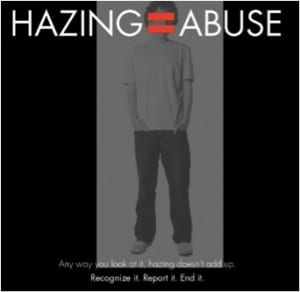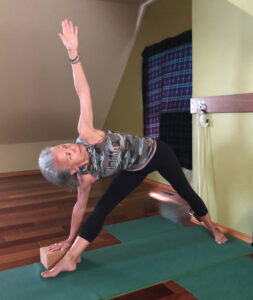Last week a small community hockey team in Neepawa, Manitoba, made the national news when a young man courageously reported incidents of hazing against himself and his seven rookie team members. For those of you who have not experienced hazing, it encompasses
any activity expected of someone joining a group (or to maintain full
status in a group) that humiliates, degrades or risks emotional and/or
physical harm, regardless of the person’s willingness to participate.
Typical hazing locations were young male college fraternities, but we continue to see it enacted in male and female athletic teams, the military, as well as other social and professional organizations. Often its key ingredient — ‘groupthink’ — is fostered by an abusive mixture of competition, power and ‘cohesive ingroup’ dynamics.
Groupthink is a psychological phenomenon occurring in groups of people where their practice of thinking or making decisions as a group discourages creativity or individual responsibility. As stated by researcher Irving Janis (1972), “the members’ striving for unanimity override their motivation to realistically appraise alternative courses of action.” Such ‘collective optimism’ or ‘collective avoidance’, as in the case of the Neepawa hockey team, speaks to the tremendous challenge and responsibility we all incur when we become a member of a group. Retaining our ability to discern right from wrong, and then speaking out against abuse, requires we resist the conformity and compliance pressures of groupthink decisions.
Such rationalized conformity existed in the Neepawa hockey hazing. “The boy’s parents claim that after the incident became public, [their son] was forced to apologize to his teammates, and his coaches suggested that he take some time off from playing.” Until further public outcry began to systematically break down the team’s conformity and compliance, the victim of abuse was the one punished. Although heads did roll in the form of an assistant coach’s resignation as well as temporary suspension of the head coach and 16 players, hazing is not a behaviour that is likely to be cured through punishing the persecutors.

Punishment, as a behaviour modification technique, is not a deterrent — as has been proven many times over by social research as well as by the ever-increasing population in penal institutions. Nor can we ignore the fact that the hockey team’s norms (competition, power hierarchy and bullying) provided the environmental conditions within which hazing flourishes. The one aspect that changed in this very old tradition is the perpetrators were ‘called out.’ This was no small act given that in research conducted by HazingPrevention.org, at least 36% of students said they would NOT report hazing primarily because “there’s no one to tell.”
Clearly, on a societal level, we have a lot of work to do before we can claim to be free of hazing. Here are a few recommendations that each of us can start with –
- Create group operating guidelines – whenever you or your children join a group, ensure the group agrees upon a set of behaviours by which they will treat each other.
- Do some research on what constitutes abuse – ‘hazing’ is merely a euphemism for verbal, physical and often sexual abuse.
- Download this free anti-hazing app on your and your children’s cell phones.
Sources:
Hart, Paul. 1998. “Preventing groupthink revisited: Evaluating and reforming groups in government.” Organization Behavior and Human Development Processes 73: 306–326.
Janis, Irving. 1972. Victims of Groupthink. Boston: Houghton Mifflin. pp. 8–9.
McCauley, C. 1989. “The nature of social influence in groupthink: Compliance and internalization.” Journal of Personality and Social Psychology 57: 250–260.




